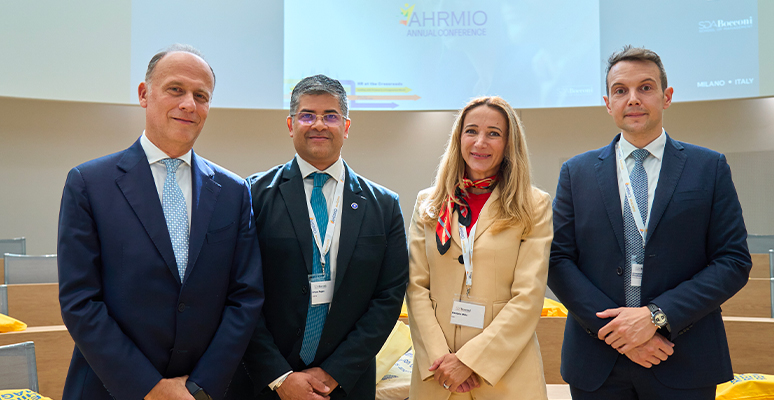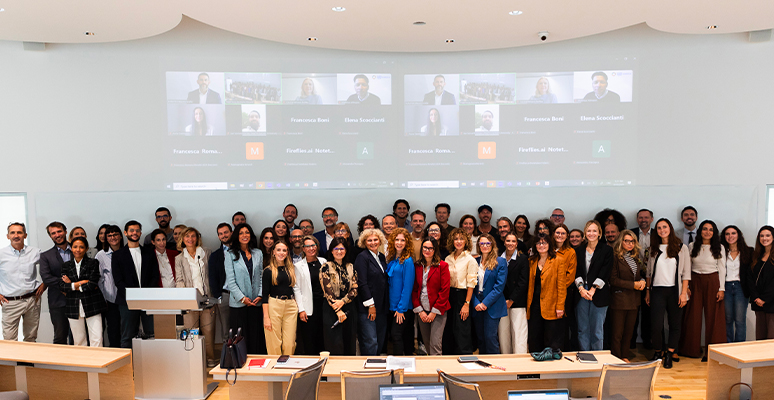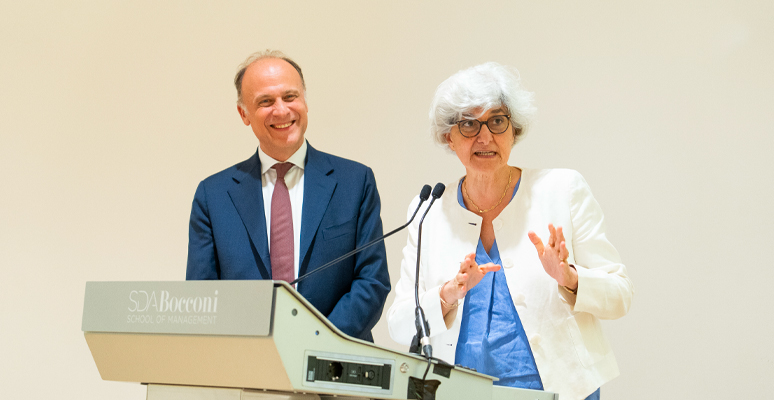
- Start Date
- Duration
- Format
- Language
- 7 Nov 2025
- 1 day
- Class
- English
The First Annual Conference of our new Master in Sustainability Management (MSM), recently organized by SDA Bocconi in partnership with ECCO Think Thank and Agora Verkehrswende, brought together industry experts, policymakers, and academics to explore the pressing issues facing the future of the automotive sector in the context of sustainability. The focus was on the decarbonization and the so-called technology neutrality, two pivotal themes shaping the European automotive landscape as it transitions towards greener solutions.
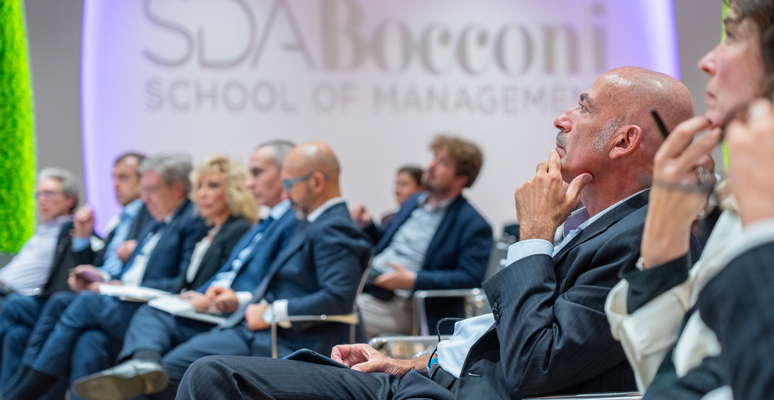
Setting the Stage: The European Green Deal and Technology Neutrality
After providing a brief overview of the history of our School of Management, Enzo Baglieri, Associate Dean for Masters Division, positioned the MSM program as SDA Bocconi’s core learning experience on these important global challenges. Focused on sustainability management, the MSM aims actually to equip future leaders with the knowledge and skills to drive sustainable transformation across industries, with the automotive sector being a primary example.
The conference introduction by Matteo Leonardi, Executive Director at ECCO Think Tank and Christian Hochfeld Executive Director at Agora Verkehrswende, centered on how Europe can deliver on its decarbonization goals while navigating policies of technology neutrality. Technology neutrality, in essence, sets broad policy goals, like reducing emissions, without prioritizing specific technologies, leaving to private actors to choose the most suitable solutions.
Baptiste Legay, representing the Directorate-General for Climate Action (DG CLIMA) of the European Commission, emphasized the EU's commitment to becoming the first climate-neutral continent by 2050. He highlighted the ambitious legislative revisions underway, including carbon markets and clean mobility policies, all aimed at industrializing and decarbonizing key sectors like automotive. According to Legay, this commitment requires both an industrial plan and a stable framework, with a strong focus on technological innovation and the transition to green technologies.
Neutrality vs. Specificity: a critical assessment
Massimiliano Bienati, Transport Programme lead at ECCO Think Tank, presented the findings of a joint paper developed with Agora Verkehrswende, examining the effectiveness of technology-neutral policies in the automotive sector. The paper, still under review, critically assesses the advantages and limitations of technology-neutral versus technology-specific approaches in climate policy.
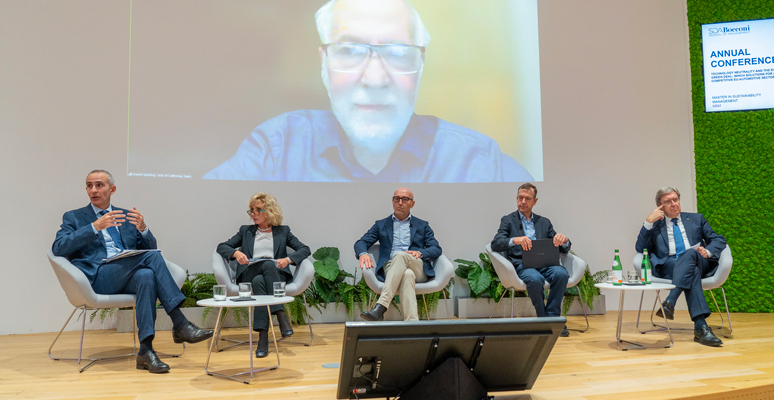
While there is broad agreement that the future of the automotive industry consists of a zero-emission mobility, the debate focuses on the most effective policy instruments to achieve this goal. As the report emphasized, “While carbon pricing remains essential for decarbonization, a well-rounded policy mix, including targeted technology-specific interventions, is crucial to ensure both environmental effectiveness and economic efficiency in the transition to zero-emission mobility.” Such a perspective may have significant implications for the upcoming review of CO2 standards in the EU, and underlines that CO2 emissions cannot be the only performance to address to balance competitiveness, innovation, and sustainability.
Challenges in Consumer Readiness and Market Innovation
During the first Panel, a key question arose: are we innovating out of necessity, simply to meet new standards? Panelists agreed that setting standards aligned with sustainability goals is essential, but the true challenge is educating the market and consumers.
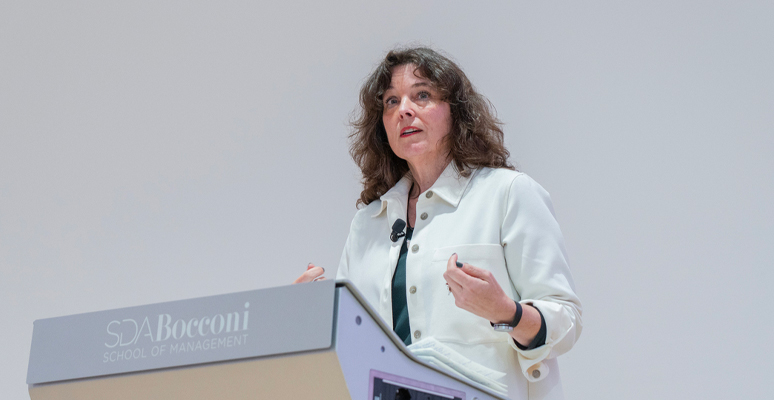
Sigrid de Vries, Director General of ACEA, shared insights from the Paris Auto Show, highlighting the systemic transformation underway as the automotive industry moves towards electric vehicles. While the industry has made significant strides in R&D, there remains a gap between legislative goals and consumer readiness. Consumers need to understand the advantages of electric vehicles, both economically and environmentally, rather than feeling forced into new mobility solutions. De Vries stressed that educating consumers should be a top priority for both industry leaders and policymakers.
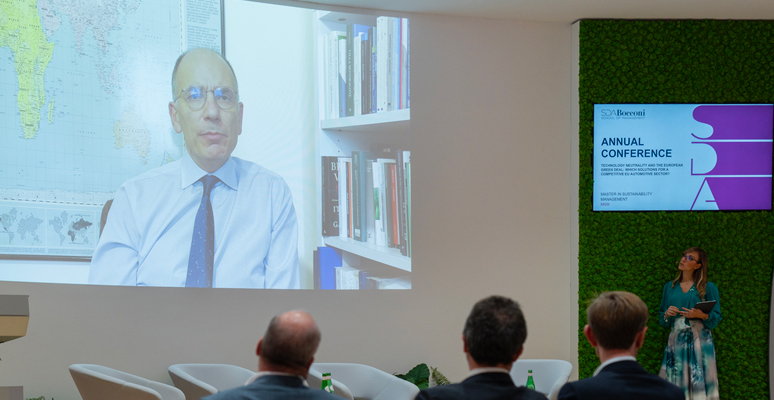
The second Panel delved deeper into the practical challenges of transitioning to sustainable mobility. Representatives from BMW and Stellantis emphasized the importance of addressing two key factors: charging infrastructure and consumer perception. In their opinions, without a visible infrastructure, consumers may perceive their countries as unprepared for electric mobility, and a cognitive barrier to the adoption of the new technology may arise.
Moreover, the true challenge lies in making electric vehicles more affordable. Consumers, by nature, are opportunistic—they want value without compromise. The demand is expecting for new product which do not ask for choosing between sustainability and other factors, like cost-effectiveness and performance.
Panelists also touched on the idea that the future of mobility transcends brands and products. It's about creating a holistic, global approach to mobility services that align with consumer needs. The real innovation in the automotive sector, they argued, isn't just in the products themselves, but in the business models that can seamlessly integrate sustainable mobility into everyday life.
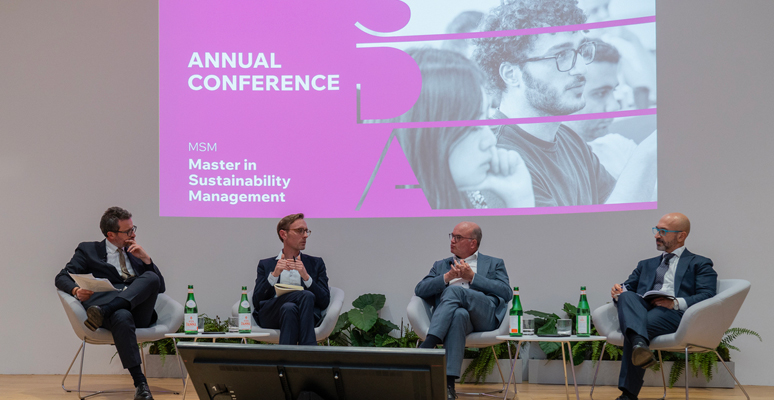
The MSM Annual Conference underscored that sustainability is no longer just an option: it is an imperative. Whether through technology-neutral policies that encourage market-driven innovation or technology-specific interventions to push the closing of the current gaps, the path forward for the automotive sector will require collaboration, innovation, and a focus on educating consumers.
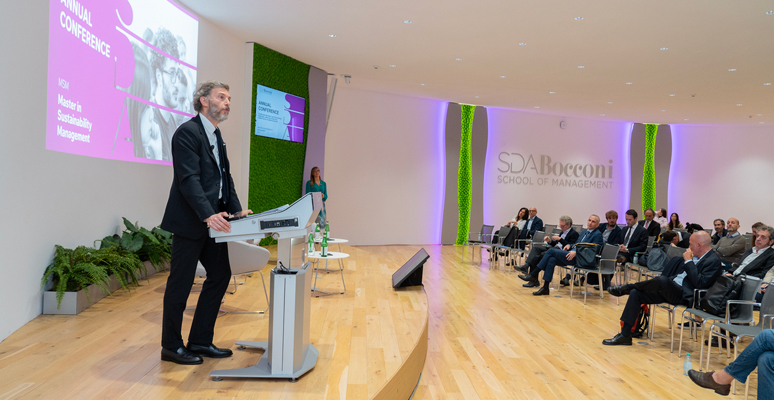
The Master in Sustainability Management (MSM) at SDA Bocconi, starting in March 2025, will continue to explore these critical topics, preparing future leaders to steer the complexities of the sustainable transformation of any business.
SDA Bocconi School of Management


Comprendere a fondo e implementare con efficacia la nuova dimensione della sostenibilità aziendale e saper realizzare un piano strategico guidato da criteri ESG.

Il corso intende fornire tutte le competenze necessarie a padroneggiare e applicare i principali strumenti e framework esistenti in materia di sustainability reporting.
